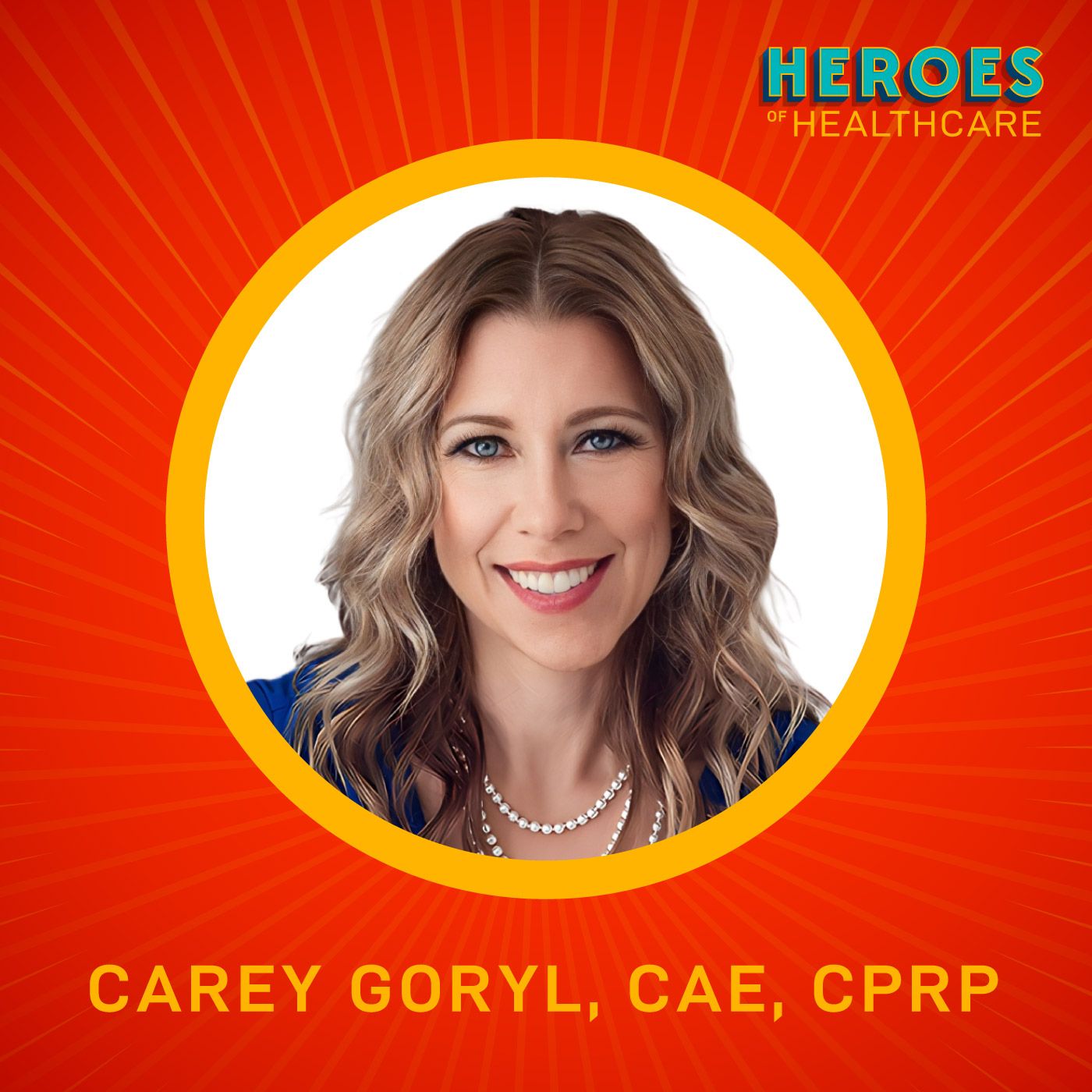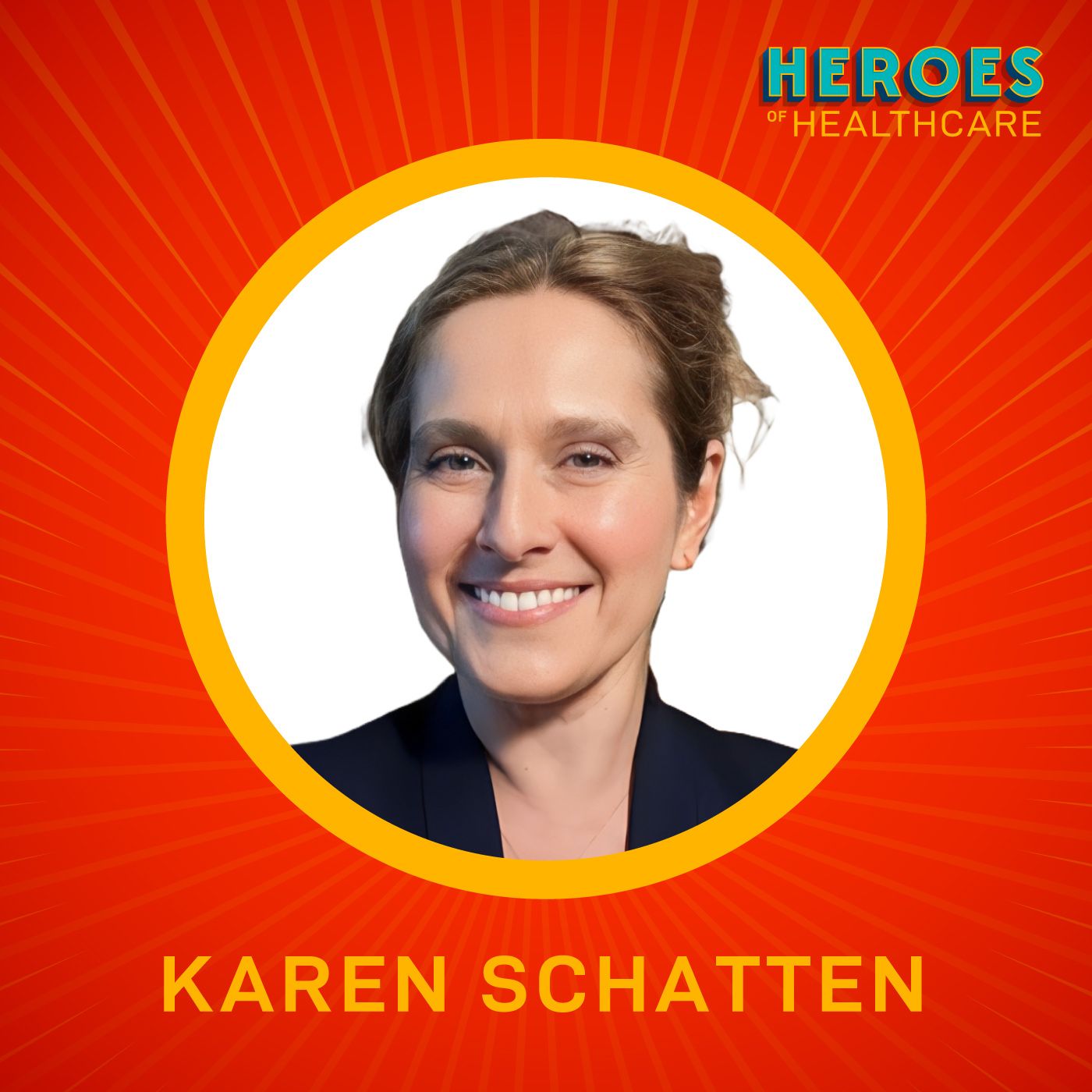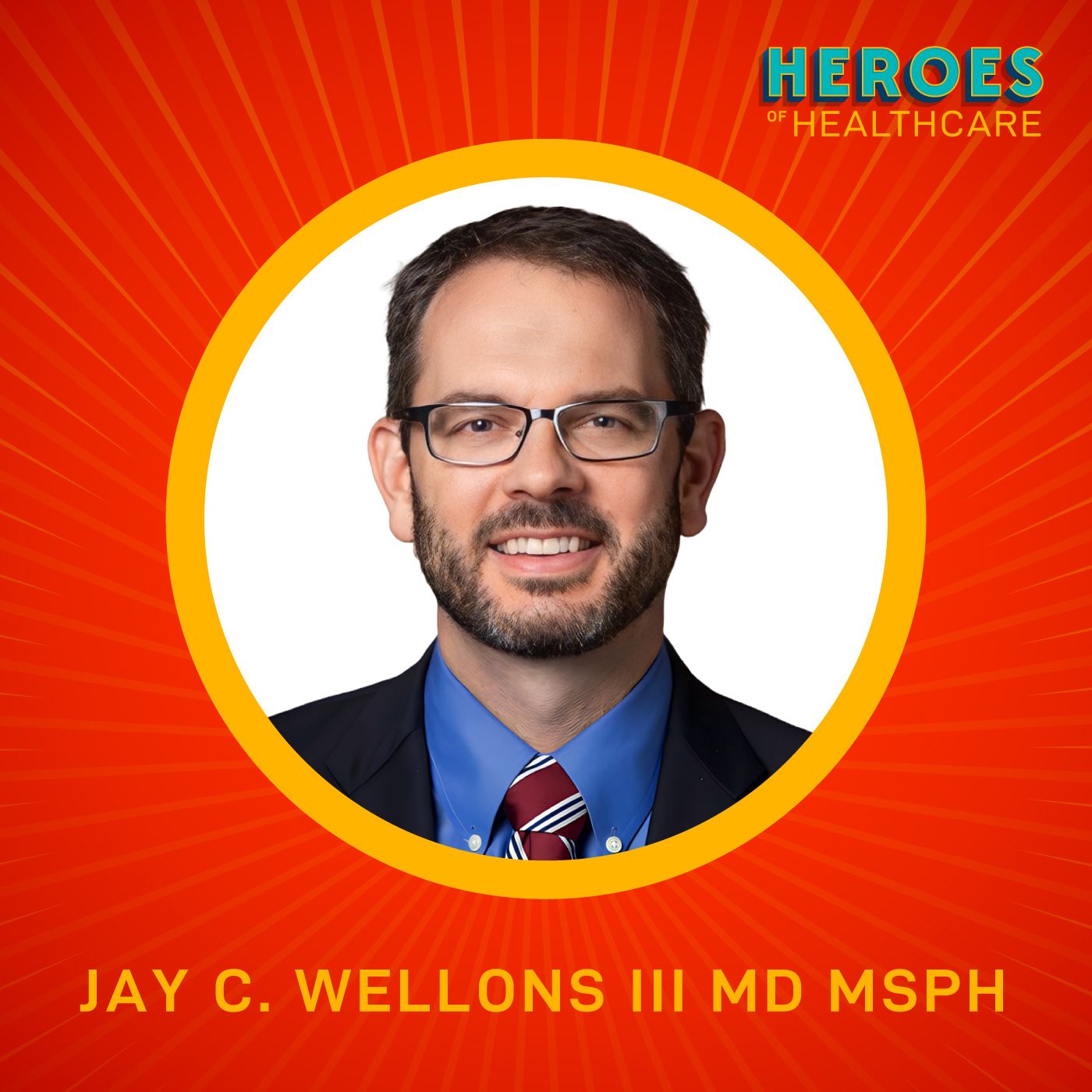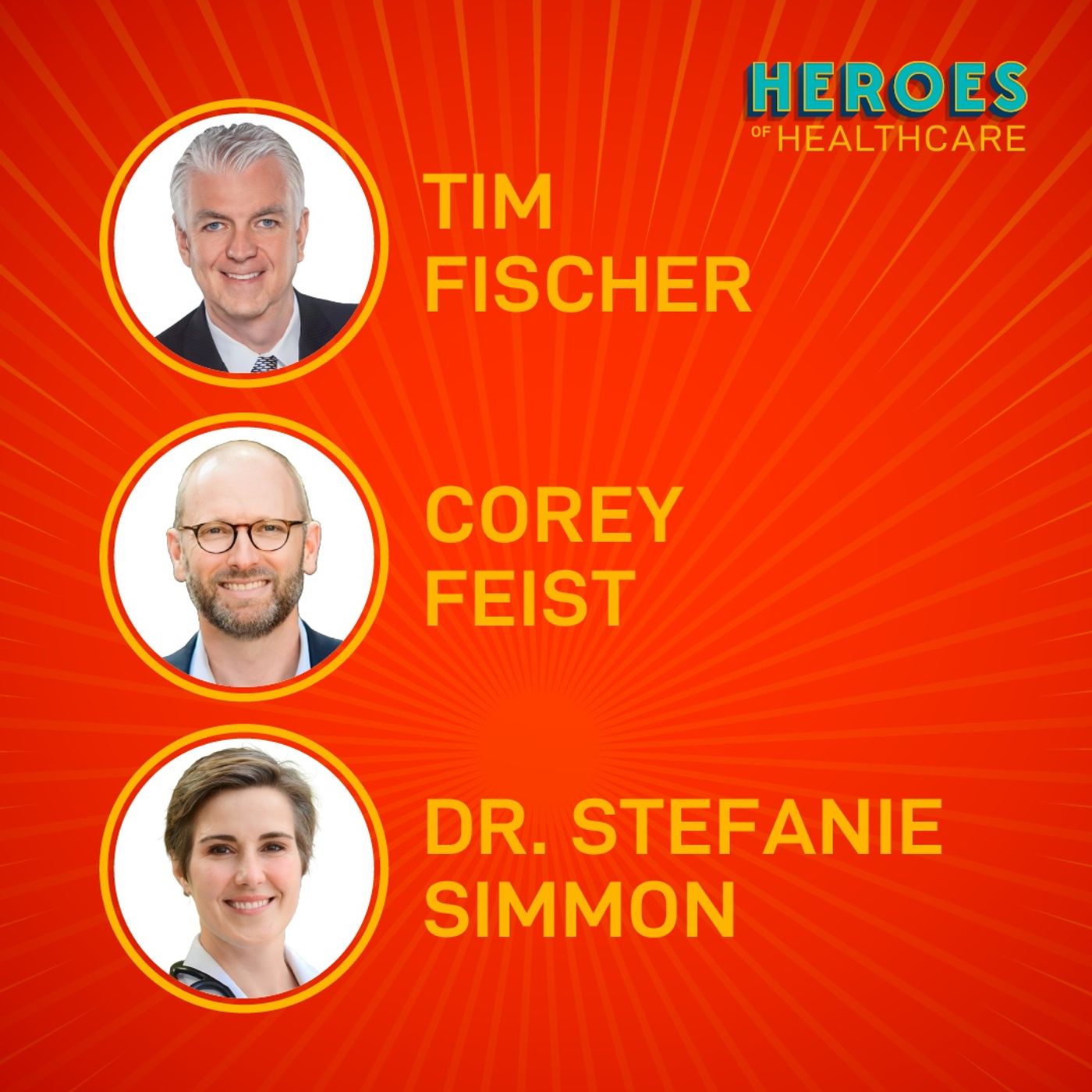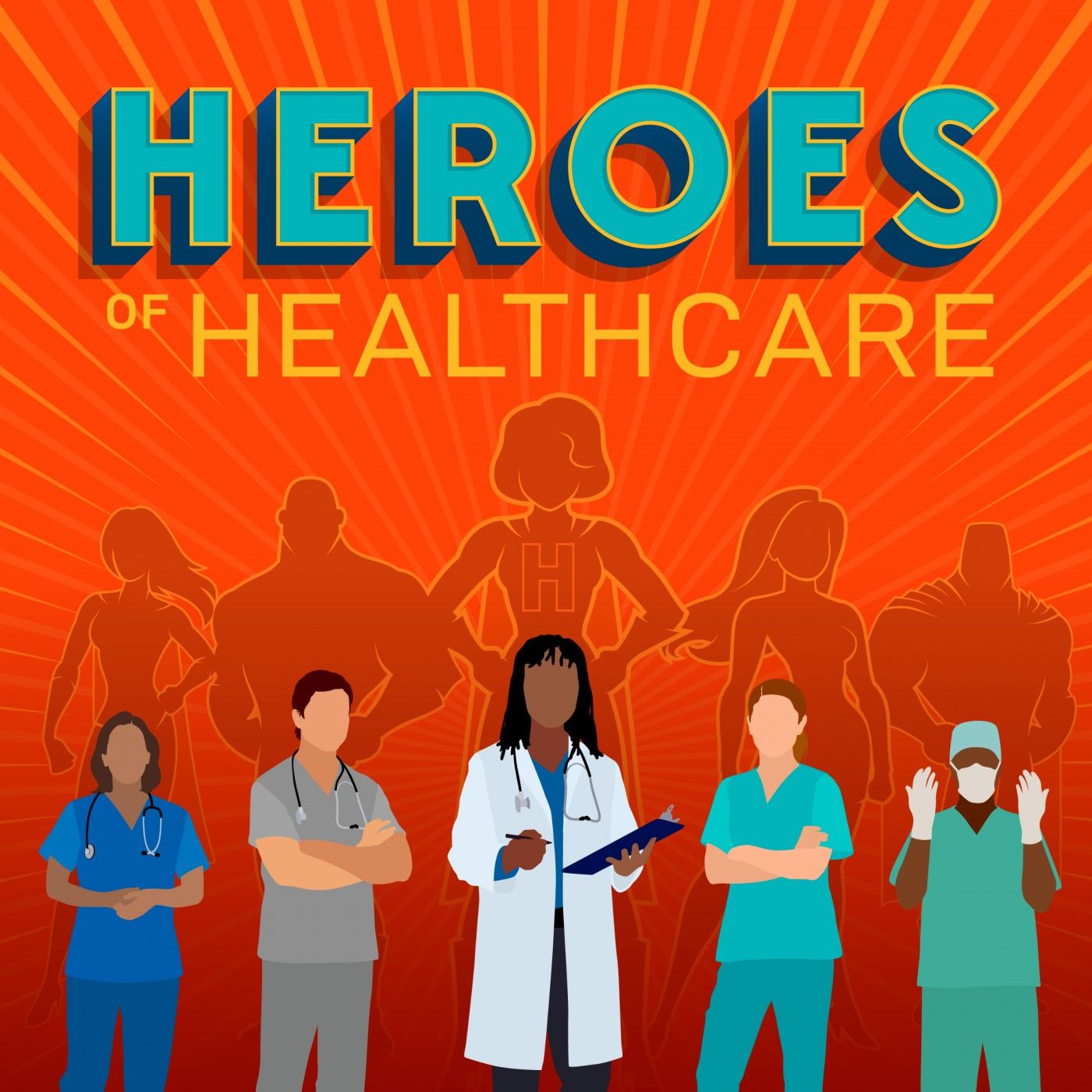Discover Heroes of Healthcare
Heroes of Healthcare

Heroes of Healthcare
Author: Ted Weyn
Subscribed: 2Played: 55Subscribe
Share
© Copyright Jackson & Coker
Description
Heroes of Healthcare is a podcast dedicated to highlighting bold, selfless professionals in the healthcare industry who are focusing on transforming lives in their communities.
Topics include: patient care, quality care, quality service, quality providers, and more.
Topics include: patient care, quality care, quality service, quality providers, and more.
85 Episodes
Reverse
In this episode, we explore the significant challenges and strategies in physician recruitment with Carey Goryl, CEO of AAPPR. The discussion focuses on AAPPR's efforts to support healthcare organizations in finding, onboarding, and keeping the best physicians. Listeners will learn about:AAPPR's key role in tackling the physician shortage and ensuring healthcare organizations have access to talented professionals.The impact of physician shortages on healthcare, including the effects on patient care and the need for a diverse healthcare workforce.Carey’s insights on leadership and culture within healthcare organizations, and their influence on recruitment and retention efforts.
We need to make sure our physicians are qualified, but there’s always room for ensuring that the certification process honors the needs and realities of today’s medical and healthcare landscape.This week, Tim Fischer speaks with Karen Schatten, Associate Director of the National Board of Physician and Surgeons. Karen brings a sincere passion for addressing physician burnout, dissatisfaction with traditional certification pathways, and supporting the goal of lifelong learning among all healthcare professionals. She delves into how patients across the country are affected by a status quo that too often fails to keep physicians focused on their patients—or fails to keep them in the medical field altogether.Join us as we discuss:The origin story for the National Board of Physicians and SurgeonsWhy it’s vital for credentialing bodies and hospital administrations recognize and accept varied certification pathwaysThe problem with valuing the dollar over the dataHow to ensure that administrative processes and requirements are adding true value
A pediatric neurosurgeon, his young patients, and their stories of grace and resilience.Olivia Reed sits down with pediatric neurosurgeon Dr. Jay Wellons to discuss his book “All That Moves Us” and his deeply moving personal experiences caring for children. Today Dr. Jay shares stories from his 21 years in the field and the resilience he has witnessed in his young patients.Olivia and Jay Discuss: Dr. Wellons' journey to writing "All That Moves Us" after experiencing his own medical crisis, a memorable emergency helicopter transport that saved a young girl's life, and the emotional highs and lows of being a pediatric neurosurgeon.
In this episode, Ted dives deep with special guest Corey Feist, and Dr. Stefanie Simmons, from the Dr. Lorna Breen Heroes’ Foundation, and Tim Fischer of Jackson + Coker Locum Tenens to talk about their new partnership. They also focus on the critical issue of mental health and well-being in the healthcare industry, which boldly addresses these challenges through awareness, advocacy, and innovative solutions. Ted, Corey, Stephanie, and Tim also discuss…The tragic inspiration behind the Foundation's missionThe importance of shifting from a transactional approach to a supportive relationship with healthcare workersThe impact of leadership on workforce well-being and patient careThe role of the Foundation in advocating for legislative improvements
“It seemed like the vagina was an organ that no one even thought of as an organ, just a big black box.”In this episode, Olivia Reed sits down with Dr. Golnoush Golshirazi CEO & Co-Founder at ScreenMe. They discuss the shortcomings in women’s intimate health and the different challenges faced when it comes to academic education and educating women overall. Dr. Golnoush shares her own personal experience being diagnosed with endometriosis and how she is helping to fill the gap in women’s intimate health through ScreenMe.Olivia and Dr. Golnoush Golshirazi discuss: Dr. Golnoush’s Personal Experience being Diagnosed with Endometriosis Bridging the Gap in Women's Intimate Health Addressing the Needs for Global Women's Health & EducationEmpowerment in the Workplace for Women’s Health
Have you ever felt stuck in your career unable to escape daily frustrations? Unable to find long term work-life balance? For many physicians, they may have found another way.In this episode, Olivia Reed is joined by Andrew Wilner, Associate Professor of Neurology at The University of Tennessee Health Science Center. They discuss Andrew’s experience as a locum tenens physician and the different challenges faced within his and others experiences. They also identify the benefits of locum tenens work, addressing shifts in medical practice, work-life balance, and the personal experiences of physicians who have successfully balanced clinical work, academia, and creative pursuits.Olivia and Andrew discuss: The Different Ways Creativity is Expressed Among Physicians. The Challenges and Benefits of Locum Tenens vs. Private Practices.The Options a Physician has in Achieving Work-Life Balance
Do you really know what a Physician's Assistant (PA) job entails? How they trained and why should you trust them with your care? Too often PA’s are not given the credit and acknowledgement of the critical work they do. Our guest is here to debunk these misconceptions for you.Leslie Schlachter, Neurosurgery Clinical Director and Chief PA. Assistant Site Director of PA Services, Mount Sinai Hospital, joins our host,Ted Weyn, to talk about the dynamic landscape of patient care, from referrals to surgical appointments. Leslie shares her personal journey, and insights into the evolving role of physician assistants, the emotional nuances of ptient interactions, and the unique challenges and triumphs in the realm of neurosurgery.Ted and Leslie discuss:The Crucial Evolution of Physician Assistants in Neurosurgery.Navigating Patient Preferences and Emotional Challenges in Neurosurgery Care.Unveiling the Impact and Risks of Utilizing Social Media for Medical Education in Serious Specialties.
There is a crucial dialogue happening on patient-centered care and healthcare advocacy, and the intricate dance between policy changes and individual well-being.Dr. David Charles, Chief Medical Officer at Alliance for Patient Access, joins the show to detail the challenges and triumphs of patient-centered care, sharing personal anecdotes and insights into the Alliance's tireless advocacy against abusive utilization management techniques within the healthcare system. Amidst the various healthcare policy debates, Dr. Charles focuses on something that cuts across them all: the crucial role physicians play in shaping policies that prioritize individualized treatment plans.Join us as we discuss: The Alliance's mission to champion patient access through advocacy against prior authorization hurdles and non-medical switchingTraining clinicians to become effective advocates, showcasing successful state-level initiatives for streamlined approvals after 72 hoursThe intricate landscape of healthcare industry challenges, including mid-course changes by insurance companies, and a balanced exploration of alternative healthcare systems.
As we near the end of 2023 our hosts Ted Weyn and Olivia D’Angelo look back at what made this an exceptional year in the healthcare industry. They also revisit some standout interviews with guests on the cutting edge of advancements made in cancer cell treatment, how AI is a new potential upending and advancements in the field of women’s health. They also discuss the human side of the industry and the greater awareness and attention being given to physician well-being.Join Ted and Olivia as they discuss: Innovations That Shaped 2023- the most impactful healthcare innovations, including 3D printing for cancer treatment and advancements in women's health breakthroughs.Personal Well-being in Healthcare- the importance of personal well-being for healthcare professionals and the broader community, emphasizing mindfulness practices and social determinants of health.Looking Ahead to 2024- insights into what lies ahead, previewing upcoming episodes that promise to dive deeper into medical innovations, personal health journeys, and the ever-evolving landscape of healthcare.
What is the right balance between the pivotal role of data in personalizing healthcare experiences and the significance of prioritizing the human element in pharmaceutical development?Amy West, Head of US Digital Transformation and Innovation for Novo Nordisk, shares her recent work and perspective on leveraging technology and data to revolutionize patient care and customer engagement in the US market. Amy shares the experience of Novo Nordisk's internal innovation incubator, as they unravel the intricacies of digital transformation, patient experience, and the delicate balance between ethics and innovation in the pharmaceutical industry. She sheds light on how her team is using cutting-edge technology and data to not only improve customer engagement but also to understand and address the root cause pain points and social determinants of health, forging a path toward a more holistic approach to patient care.Ted and Amy discuss:The holistic approach to healthcare: addressing root cause pain points and social determinants of health.Navigating the ethical complexities and regulatory challenges in pharmaceutical marketing, illustrated by the oxycontin story.The transformative power of data in personalizing healthcare experiences and prioritizing the human-centric approach in pharmaceutical development.
Ever wonder just how much alternative medical models could revolutionize healthcare? The ability to provide better care at lower costs is a tangible reality that the industry might want to start paying more attention to.Healthcare expert Dr. Jack Cappitelli, Chief Medical Officer NJ Region Summit Health, discusses his experience with alternative medical models and the transformative impact of empathetic leadership during the COVID-19 era. He discusses how new models can help modernize a multitude of major issues, from cost-effective multi-specialty practices to the challenges of rapid expansion and physician burnout.Join us as Dr. Cappitelli and Ted discuss:The potential of alternative medical models to offer better care at lower costsStrategies for healthcare growth, including data analytics, primary care focus, and the importance of empathetic leadership during the COVID-19 pandemicNavigating healthcare delivery systems, addressing provider well-being, and the role of technology in shaping a patient-centered care approach
These days we certainly don’t think much about meeting with a doctor or nurse practitioner online if we don’t need to see them in-person. But if you live in a rural area the recent advancements in telemedicine and healthcare access are life-saving.This new unprecedented access to doctors, not just remotely but across state lines, is due to the Interstate Medical Licensure Compact (IMLC). This initiative has had a transformative impact on healthcare access, telemedicine, patient care and for those working as and with locum tenens.In this episode Marschall Smith, Executive Director at Interstate Medical Licensure Compact Commission (IMLCC), discusses the evolution of the IMLC role in expanding telemedicine, addressing the healthcare access gaps in rural areas, and offers insights into the ongoing efforts to get more states on board with this groundbreaking initiative.Join us as Ted and Marschall discuss:The historical background of the IMLC, its formation, and the key role it plays in simplifying the medical licensure processThe vital connection between the IMLC and the growth of telemedicine, especially in underserved areasThe challenges and opportunities on the road to achieving a nationwide program, with the potential to revolutionize healthcare accessibility and quality across the US
When patients receive a life-changing diagnosis, they can feel as if there is nowhere to turn for quality, timely answers to their questions and concerns. At the same time, providers are spending more of their day charting information and handling back-of-office tasks than they are spending caring for patients — leading to burnout. Manav Savek, CEO of Memora Health, is here to offer a solution. Memora’s ability to automate tedious back-of-office tasks allows a new sense of freedom for providers to focus on patient care and well-being. By utilizing emerging technologies, communications are streamlined, meaning providers are able to quickly address top-priority patient communication without the added noise. Join us as we discuss: The importance of patient-centric care for both patients and providersModernization in healthcare: cutting through the confusion and providing the best careThe revolutionizing potential of utilizing AI in healthcare
Cancer comes in many forms, each requiring a specific treatment approach. In addition, based on a patient’s genetics, cancer can be difficult to eliminate with concerns such as treatment ineffectiveness and negative immune responses. Another major challenge: many patients are on borrowed time, limiting the options for various treatments.Ishani Malhotra, Chief Executive Officer at Carcinotech Ltd. plays a role in an innovative solution. By 3D printing tumors using a single patient biopsy, the team can account for cancer cell makeup, genetics, and patient-specific immune responses in a matter of days. Shifting treatment testing from humans to these accurate tumor prints eliminates many negative effects for patients and vastly cuts effective treatment selection time.Join us as we discuss:Innovations in cancer treatment, research, and drug development with 3D printingReducing failure rates with rapid and precise drug testing platforms for personalized treatmentWhy growth in personalized medicine testing, clinical trials, and collaborations will require consistent, automated, and high-quality reporting
70% of medical professionals wouldn’t recommend the profession to others — a glaring red flag that’s the result of a broken system where health practitioners can’t serve patients in a way they like.Dr. Kristin Jacob, Medical Director, Office of Physician and APP Fulfillment at Corewell Health West has dedicated her career to switching the narrative and rebuilding healthcare culture so that professionals and patients alike can embrace the full benefit of top-notch care provided by physically and mentally resilient practitioners — something only possible with a resounding culture of wellness.Join us as we discuss:Balancing passion and business acumen for sustainable, successful healthcareActionable steps for cultivating a culture of wellnessEmpowering healthcare professionals with an attainable holistic approach
In the face of a global pandemic, people fought and won the battle. Their weapon of choice to go faster and be better? Data and artificial intelligence. Tom Lawry, Former National Director for Artificial Intelligence of Health and Life Sciences at Microsoft and author of Hacking Healthcare joins us to discuss what the healthcare industry learned from the pandemic and how those lessons can translate into a better, more efficient future of the industry. Where current efforts are somewhat stalled — the opioid crisis, chronic disease, cancer — AI and tech can be leveraged for innovation and rapid progress.Join us as we discuss:The power of cross-disciplinary insights in fueling innovative problem-solvingEmbracing AI to drive efficient patient care, reduce misdiagnoses and empower cliniciansTaking the wheel in AI’s chaotic innovation to pave the way for a better healthcare future
Healthcare workers are suffering in silence from burnout and poor mental health. Dr. Olivia Ong, speaks to us about overcoming a life-changing car accident and struggling with the stresses of being a physician. Healthcare is undeniably a field that requires its workers to be strong, both physically and mentally. Yet, countless employees are suffering from burnout because of the stigmas around seeking help or appearing weak. This leads to even larger mental health problems over time. Dr. Ong, Founder and Director of The Heart-Centered Method Institute Pty Ltd, aims to change that narrative. By offering support and raising awareness, her work towards stopping the stigma is changing the lives of healthcare workers (and their patients, too). Join us as we discuss: Stigmas surrounding addressing mental health and burnout in healthcareStopping the stigma: resilience is not a fixed attribute Building awareness, support systems and promoting self-compassion
There are only a handful of people in the world who get the opportunity to work directly with the country’s leaders to influence the public health of the United States. The insights and experiences gained by these industry leaders are invaluable.Returning to the podcast, Sandra Elizabeth Ford, Former Special Assistant to the President for Public Health and Science at The White House, joins to discuss her experiences in her role in the capital. Her work to support communities and frontline healthcare during the pandemic has been astronomical. By addressing the need for quality local health clinics and supporting them throughout the pandemic, Dr. Ford is working to ensure top-tier healthcare for all. Join us as we discuss:Addressing local public health experiences to effectively manage crisesThe White House’s action plan and the importance of collaboration and flexibilityEngaging with frontline healthcare workers to build effective strategies
One in three women experiences abnormal uterine bleeding and pain. What’s worse — it’s normalized. Symptoms leave women struggling in silence, options limited to ineffective hormonal therapies, expensive and invasive surgeries or continual suffering. Keren Leshem, Chief Executive Officer at OCON has set out to make a change in women’s health. The development and launch of innovative products like the IntraUterine Ball (IUB) embrace modern science and offer non-invasive, affordable alternative solutions to women worldwide. But these developments don’t come quickly — they take the investment of time, resources and dedication from professionals around the world, with women like Keren leading the way.Join us as we discuss:Advancements in women’s health, and significantly improved outcomesTailoring healthcare solutions to meet specific needs by increasing diversity, inclusion and accessibility in clinical trialsBringing awareness to women’s debilitating health issues that have historically been dismissed
Poverty and healthcare are deeply intertwined in Brazil, creating a vicious cycle of hospitalization, rehospitalization, and poor health outcomes. Without intentional intervention and innovative solutions that reach beyond the hospital setting, overall well-being will never improve.Dr. Vera Cordeiro, Founder and Chairwoman of the Board of Directors of Dara Institute is on a mission to spearhead the social change on a global scale necessary to enable equitable access to healthcare using perhaps the most powerful tool available: data.Join us as we discuss:Interconnectedness of poverty and healthcare (and how we can change both)Social entrepreneurship for health equityHow data-driven decision-making vastly improves health outcomes


